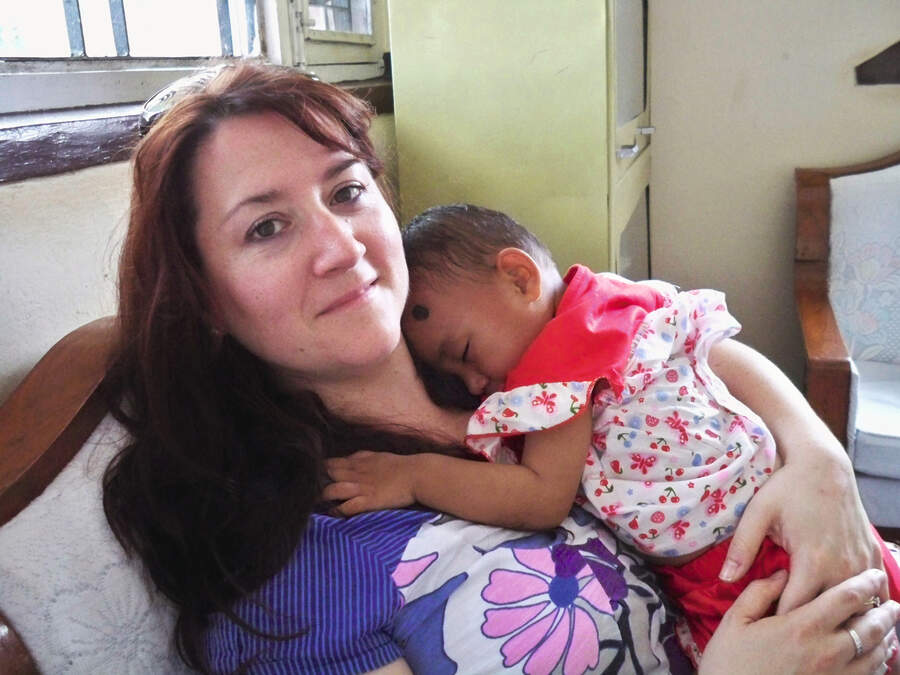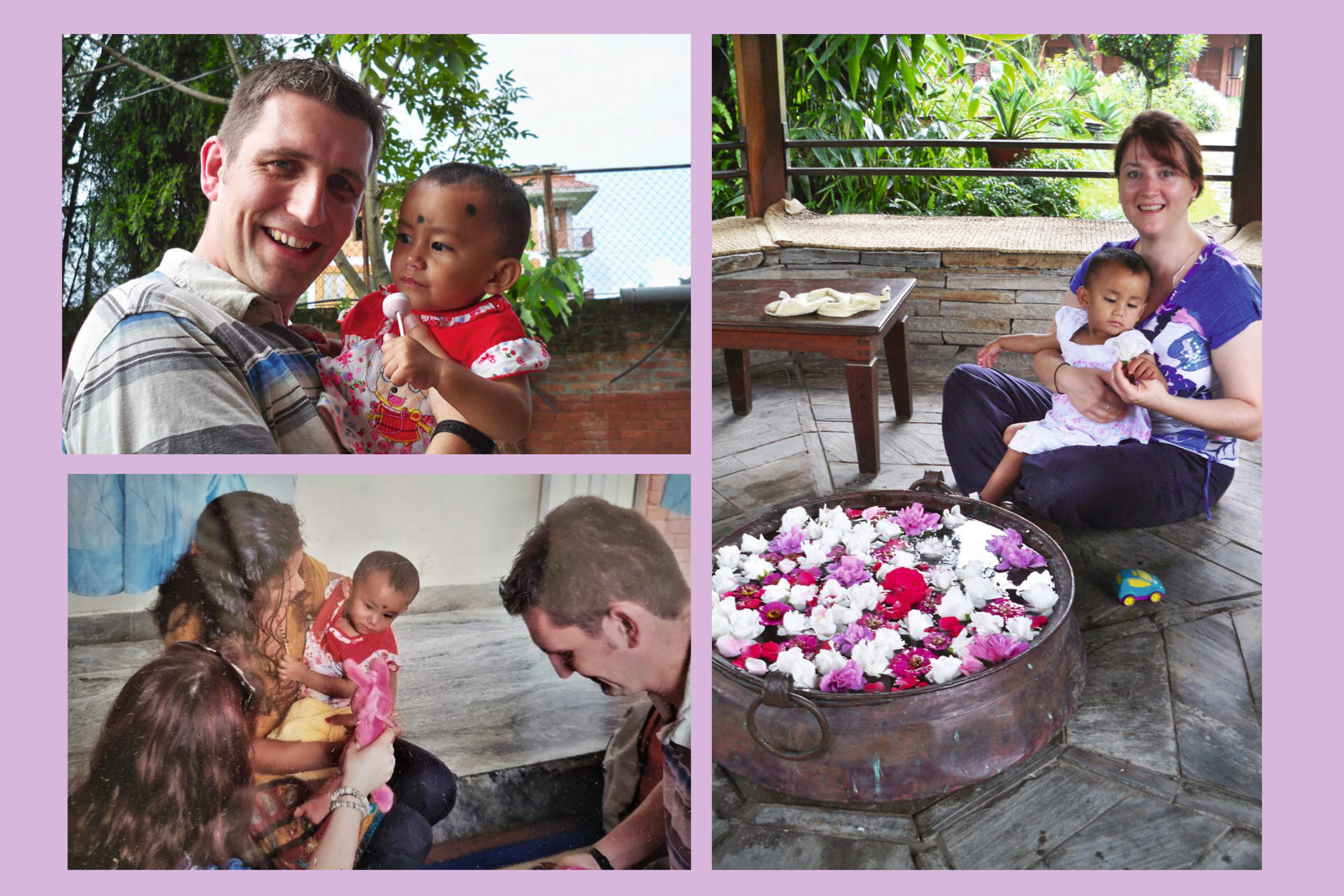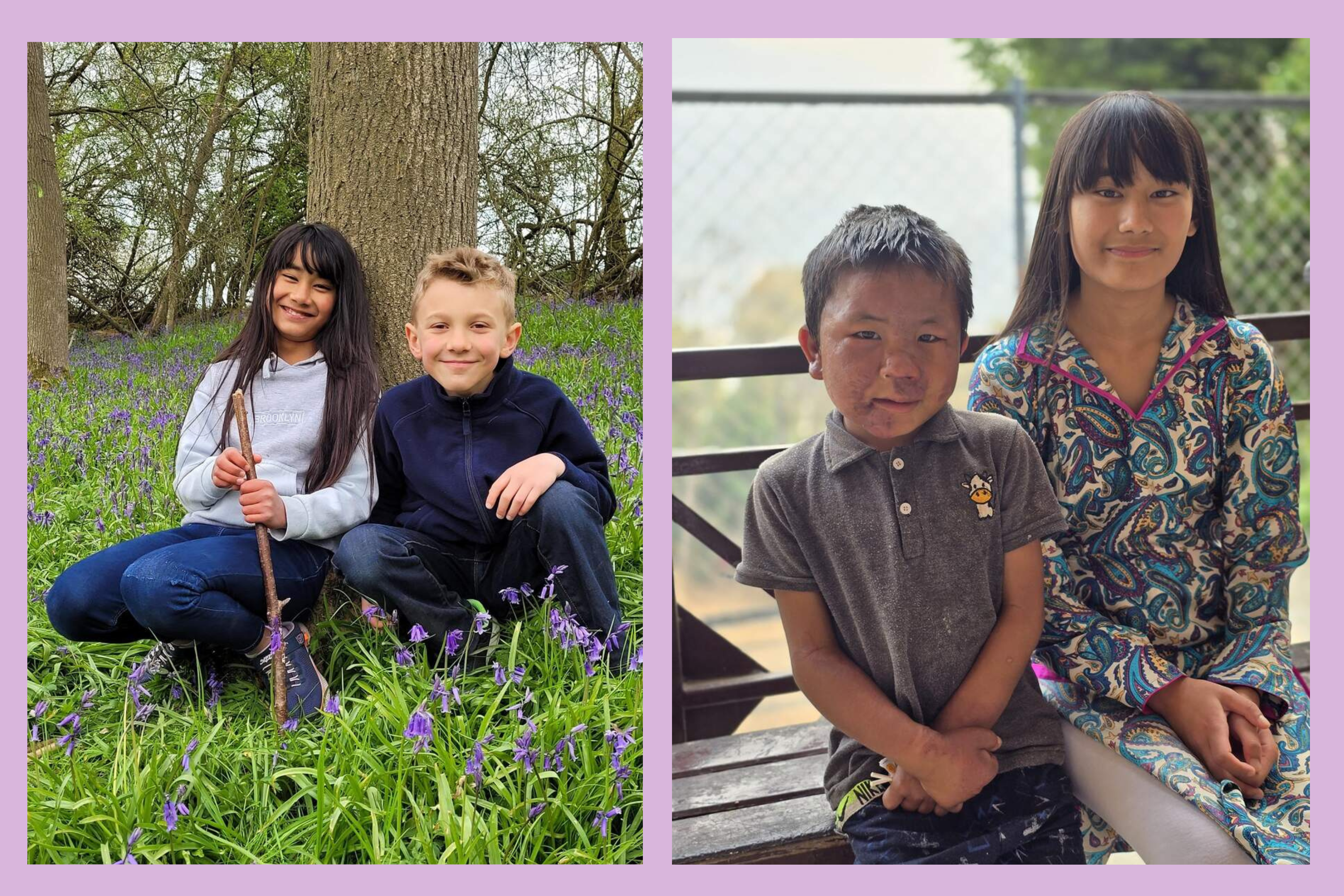
Louise Timmins, 49, adopted daughter Marika in Nepal in 2011 - almost six years after starting the process. She tells us about the long journey, and how life has changed since her daughter's arrival.
Drinking my coffee, I listened to my colleague Rachel describing children’s homes filled with orphaned babies in Nepal. It upset me to think of children in need of love, particularly as I wanted nothing more than to hold a baby in my arms.
It was early 2005 and I’d met Rachel through my role as Fundraising Manager for The Leprosy Mission in Peterborough, as she and her husband ran the charity’s specialist hospital in Anandaban, Nepal.
Now they were visiting the UK as part of their work, and I’d confided in Rachel about how my husband Paul and I had endured six heartbreaking years of fertility issues and devastating early miscarriages due to me having polycystic ovary syndrome.
We’d been considering adoption, and with Rachel’s words about Nepali children weighing heavy, I spoke to Paul later that night. "Why don’t we adopt a child from Nepal?" I said. He was really keen, so we spent months filling in forms and attending meetings and assessments. After being approved by an adoption panel 12 months after we’d started we excitedly decorated our spare room with pastel paint and handmade bunting. Another colleague in Nepal, Shovakhar, and his wife Laxmi offered to help, representing us at meetings with Nepali adoption officials.
But we hadn’t bargained on administration issues in Nepal. After two years, we still hadn’t been matched with a child. One day in 2007 I was so upset I took a paintbrush and splodged cream paint across the nursery walls, effectively whitewashing away our dreams. "I’ll never be a mum," I sobbed to Paul afterwards.
Years drifted by but then in December 2010, an email arrived from Shovakhar in Nepal. He and Laxmi had continued to liaise with Nepali adoption panels on our behalf. And now I blinked in shock as I opened his message and read, ‘This is your daughter.’ Trembling, I clicked on the photo of a beautiful nine-month-old girl, Marika, and saw that we’d been matched with her for adoption. "I can’t believe it," I sobbed.
Trembling, I clicked on the photo of a beautiful nine-month-old girl.... I fell instantly in love
I read that she was living in a children’s home, having been left as a newborn outside a hospital. The doctors estimated that she had been just a day old. Gazing at her picture, I fell instantly in love and when I showed Paul, he did too. "I just want to bring her home now," I said to Paul.
Due to the red tape involved in adopting from overseas, more months passed. Then finally, in June 2011, officials told us we had four weeks to fly to Nepal and collect Marika or the adoption would be cancelled.
We raced around shops, buying a cot, buggy, high chair, car seat and little outfits, and even managed to decorate the nursery for a second time. ‘I just hope she likes us,’ I fretted, as we boarded a flight from Heathrow in July 2011.
After arriving, we travelled an hour to the children’s home. As we walked nervously into a room, a carer approached and handed a little girl with big brown eyes over to me. Marika, then 16 months, just looked at me with a big smile. Squeezing her as she nuzzled close, I couldn’t have loved her more if I’d given birth myself. "I’m going to be your mummy," I told her.

I couldn’t have loved her more if I’d given birth myself. "I’m going to be your mummy" I told her
Marika was anxious around Paul because she wasn’t used to male voices, so we spent three days getting to know her at the children’s home. Although delightfully cheeky, blowing raspberries and smiling, she was in a terrible state, without teeth or hair. Staff had done their best, but with a lack of funding and hardly any fresh food, they’d had to feed the babies with watery rice porridge so she was very thin.
After leaving the home, we spent a month living in a guest house at Anandaban Hospital, where doctors ran tests and treatments to rid her of parasites and infections. We all had lots to learn – she’d only settle at bedtime lying squished against my head, because she’d always slept beside other children. But she was accustomed to drinking her bottle of milk without any help. "Let’s cuddle," I’d smile, scooping her up as she gazed at me contentedly.
There were magical moments, such as watching her excitement when Paul let her try a piece of mango. "Mmmm yummy," he beamed, making her giggle. After two weeks of solid food, her teeth emerged, although her hair took longer. Finally, we brought her home and family couldn’t wait to come and meet her, showering her with gifts.
Taking a year off work, I wanted Marika to enjoy new experiences. Every morning, she’d hurry to the hallway to put on her shoes. Confident and curious, she loved exploring the local shops and park, as well as feeding the ducks on the pond.
As years passed, she thrived at school and made great friends. We always explained her story to her with gentle honesty. "The person who left you at the hospital clearly loved you because they knew you’d be looked after there by the doctors and nurses," I’d say.
Aged five, in 2015, she was thrilled when we told her that she was getting a brother

Aged five, in 2015, she was thrilled when we told her that she was getting a brother when adoption workers in the UK contacted us about a baby with birth parents from Afghanistan and Lithuania. Finn, then 11 months old, slotted into our family and Marika adored him.
As she grew, of course she looked nothing like me but we would laugh at the same silly jokes together and, like me, she loved learning languages including Spanish and French.
In 2017 we took Marika, then seven, back to Nepal, to show her where she was born. "I’d like to come back again one day," she told me on the plane home. Years passed, but in April 2024 we returned. At Anandaban Hospital, I watched Marika, 14, chat to a seven-year-old leprosy patient called Kamal and showed him photos of our dogs on her phone.
"I want to be a doctor one day so I can work here," she said, and I just watched on with pride.
Last month, she completed a sponsored obstacle course at Belvoir Castle, Grantham, to raise funds for Anandaban Hospital and I’ve no doubt she will fulfil all her dreams. Finn, now 11, is learning so much from his big sister and Paul and I couldn’t be happier with our perfect little family. It doesn’t matter that our children aren’t biologically ours because we love them just as fiercely. They were certainly worth the wait.
For more information visit The Leprosy Mission.







